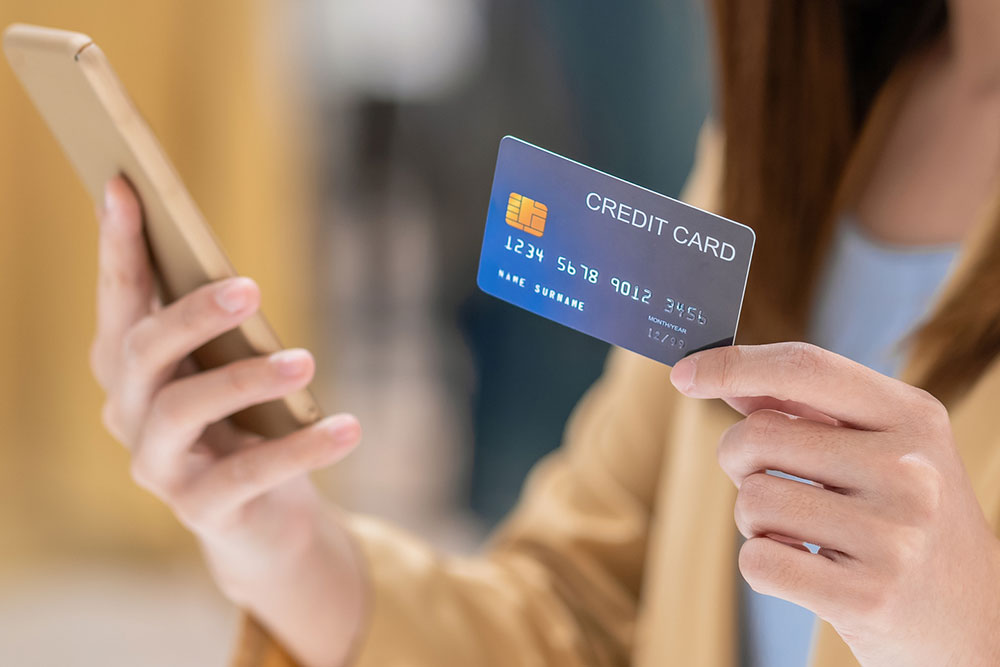10 common mistakes to avoid when using credit cards

Paperless transactions are trending worldwide for the convenience and sustainability they facilitate. Credit cards promote this trend and ensure that one’s purchasing power is not determined by the amount currently available in their bank account. Credit cards provide one with the flexibility to buy products or avail of services on credit and pay the bank later. However, to maximize its benefits, it is important to avoid the following mistakes while using a credit card.
Not paying bills on time
One of the gravest mistakes credit card holders can make is to delay their bill payment. Paying one’s bills after the last date repeatedly can affect one’s credit score considerably, causing problems with obtaining loans and increasing interest rates. Thus, it is important to understand one’s billing cycle, i.e., when the bill gets generated and the number of days allotted to the credit card holder to make the payment.
Applying for multiple credit cards simultaneously
Owning multiple credit cards is often a strategy to split expenses and increase purchasing power. However, it is not a good idea to apply for multiple credit cards within short periods of time. Each time one applies for a credit card, the issuer undertakes an extensive inquiry on one’s credit report. Applying for multiple credit cards simultaneously triggers multiple inquiries, reflecting poorly on the applicant. In fact, certain banks stipulate a time period (such as two years) within which one should not have opened any other credit card before applying for the current one.
Using the entire credit repeatedly
While occasional utilization of the entire credit is permissible, making such purchases repeatedly can significantly reduce one’s credit utilization rate or the percentage of credit used out of the total credit granted to the credit card holder. As a general rule, it is advisable to avoid utilizing more than 30% of the allotted credit.
Not checking one’s bank statement
Checking one’s bank statement is essential to promptly detect any purchases that one has not made and report such fraudulent activity. Moreover, it provides one with an overview of one’s expenditures and helps one understand their purchase patterns. Hence, it is a good idea to review one’s bank statement every month before paying the credit card bill.
Not knowing the key terms related to credit card
Individuals typically receive a comprehensive agreement when they are approved for a credit card. While it may be tempting to avoid reading this agreement, knowing the key terms it describes is important to understand the fees applicable to the card holder. For example, the purchase annual percentage rate (APR) is the annual interest rate charged for individuals having a month-on-month balance, while the penalty APR is the higher interest rate incurred due to late bill payment. Knowing what each of these terms stands for helps identify the reasons for any overhead expenses incurred.
Closing a credit card
Closing a credit card affects one’s credit history. For example, if one has owned two credit cards for three years and two years, respectively, their total credit history is five years. However, closing one of these credit cards reduces one’s credit history by three or two years. Hence, it is advisable not to close credit cards, especially old ones, so that one’s available credit amount is higher.
Opting for cash advances
A cash advance refers to using the line of credit linked to one’s credit card to withdraw money. Although a cash advance may seem like a quick and easy solution, it is not a good idea in the long run, as one may end up paying additional fees and a higher interest rate than they normally would for regular card utilization. The cash advance fee is typically up to 5% of the total amount one withdraws as a cash advance, while the APR is at least 20%. Such increased additional fees can cause problems with securing loans. Moreover, it is easy to get into the habit of taking cash advances, which increases one’s expenditures eventually due to higher interest rates and fees.
Overspending to receive rewards
Reward credit cards come in extremely handy to save money and enjoy several benefits. However, going the extra mile to spend more just to receive a reward can have negative consequences. Overspending for rewards may lead one to have lesser available credit and end up buying products one does not require on an immediate basis. Perpetually less credit availability can reflect negatively on the credit-card holder, making it difficult to secure a loan with a lower interest rate. Therefore, it is best to spend only as much as required through one’s credit card. Reward points are bonuses that may follow organically even through one’s regular purchases.
Spending more than one can afford
It is easy to end up overspending while using a credit card, as it does not require one to pay the amount immediately. However, it can cause a hole in one’s pocket eventually when the amount has to be repaid. Thus, it is a good idea to evaluate one’s budget plan for the month and gauge whether a major expenditure can be safely carried out without a delay in repayment. If not, one should consider holding on till one can afford to repay the amount without a hassle.
Opting for an EMI frequently on card purchases
Equated monthly installments (EMI) are often convenient to pay off large debts flexibly. While users are offered EMI options on most cards for large purchases, opting for EMIs repeatedly is not a healthy financial practice. An EMI requires one to pay a specific interest rate in addition to repaying the principal amount, which increases one’s expenses. Thus, one may end up spending more than the actual value of the product purchased. It is best to opt for an EMI only for highly expensive long-term purchases, such as when buying a gadget, utility, or electronic item.



